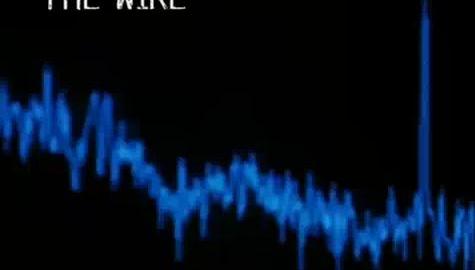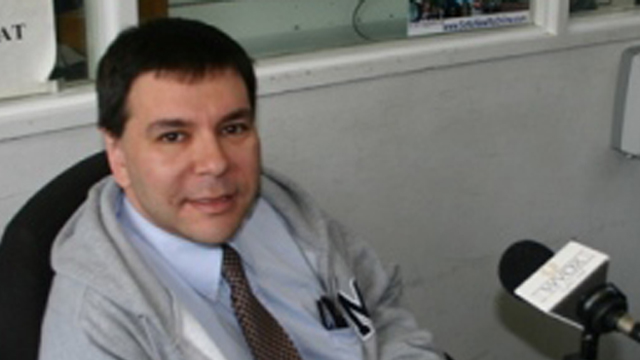This Summer I Became Addicted To The Wire

I became addicted to The Wire.
I know, I ‘m late to the party. Very late, since the final episode aired over two years ago. But over the last few weeks I spent more time in front of the TV screen than I normally do in six months. This HBO drama that first aired ten years ago before airing its final season in 2006 has been on my list of shows to watch ever since I saw the video “100 Greatest Quotes From The Wire” on Youtube back in the spring. The hot weather, combined with a certain reluctance to sit in front of a keyboard lately, made watching one show after another a seductive proposition.
I started by watching the fourth season, which was a very compelling mix of crime, politicians, corruption, and campaign trail shenanigans that made for a full bodied story. The race between Carcetti and Royce to be the next mayor of Baltimore seemed to mirror in many ways the political climate in Atlanta, another city with an unending line of black mayors for the last thirty years whose string of victories looked like they were about to come to an end last year. It wasn’t apparent until I went back and began to watch the series from the beginning that I understood how crucial the mayor’s race and its attendant ripples throughout the city’s administration was to stoking my interest in this critically acclaimed program.
If I had watched this from the beginning, the slow, gradual pace would have lost me by the third episode of the first season. I could have done without the second season, which revolved around the docks and the slow death of the Checkers Union. For the writers, the show may have been about Jimmy McNulty, the Irish Everyman, as a change agent and provocateur, but for me, it was about everything else. Beginning in media res, with no segues into backstories or storylines inserted solely to advance the plot, was the way this should have started. The writer and producer David Simon seems to have learned this himself—his latest HBO production, Treme, picks up the pace a lot faster, with much about the relationships and backgrounds of the main characters that is still unexplained.
The series was a welcome respite from the dog days of summer, each episode a series of pithy parallels between the operations of the drug business and police business that are rendered pitch perfect, as if the show was a stage play instead of a teledrama. The thing that held me was the dialogue—honest, gritty, and succinct. This was a writer’s show, exhibiting the kind of care with language that evokes the classic films of the thirties and forties. Who else but a writer would imagine giving the character Omar Little, a robber of drug dealers with Robin Hood tendencies, the kind of lines you normally see in one of Shakespeare’s tragedies?
“Man, money ain’t got no owners. Only spenders.”
“Well, you see, Mike-Mike thought he should keep that cocaine he was slingin’ and the money he was makin’ from slingin’ it. I thought otherwise.”
“Listen hear, ‘Bay: you come at the king, you best not miss.”
“I’ll take that money, and those drugs, good fellow.”
“See back in middle school an’ all I used to love them myths. Stuff was deep. Truly.”
Quotes by Omar Little in The Wire
But there was more to the show than witty, well-crafted lines. The acting in most cases was superb, and then there were performances that may have been the best some of these actors have put in to date in their careers. My favorite actor was Robert Wisdom, who played Howard “Bunny” Colvin, a major whose forceful acting and sizeable build made you believe he was a Baltimore police major with thirty years under his belt. And although Wood Harris put in what should have been recognized as an award winning performance by one of these award shows for his portrayal of ghetto drug kingpin Avon Barksdale, it was Jamie Hector, playing the well organized, up and coming drug dealer Marlo Stanfield whose dead eye stare was the most mesmerizing in the end.
For me, after watching the whole thing, the fourth season is the charm. It does more in twelve episodes to humanize the people who live on the mean streets of Baltimore than any other part of the series. I don’t think there is any coincidence that David Mills, a soulful African American writer who had worked on Homicide:Life On The Streets, began writing for the show in the fourth season. Following the intense ghetto glorification of seasons one and three, I was more than ready to start rooting for the kids depicted in these streets to have half a chance to escape the madness. This was the first season to balance the powerlessness of the black men on the streets of Baltimore with the power wielded by the city’s black political establishment, which probably contributed more to a sense of realism for me, a resident of the Atlanta metro area, than anything else.
As a writer who rarely watches anything on TV, it was nice to let guys who obviously knew their way around a keyboard tell me a story for a change.





